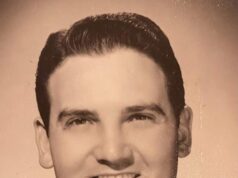BY FRANK X WALKER
I was only 3-years-old when Dr. Martin Luther King, Jr. led the historic march on Frankfort. Yes Frankfort, not Washington (although that was a big deal too). Frankfort as in our capital of the Commonwealth. When I look at stock photos of neatly dressed marchers (young, old, black and white, men and women) from that infamous day on March 6, 1964, I can’t help but wonder what happened. What happened in Kentucky that resulted in almost nobody under 40 and only a few people older than 40 knowing anything about the march and very little about the civil rights struggles in Kentucky in general? I mean there are thousands of people in the photos, surely they told somebody else. It was less than 40 years ago and I was almost 40 when I found out about it myself.


I could blame it on parents because all my own father remembers about King’s death is that he was at work in a meat packing plant, sloshing around on the killing floor in his yellow apron and black rubber boots and the supervisor came in and announced that they were closing up and sending everybody home. Like many residents of small towns and poor communities in Kentucky he didn’t get the daily paper and didn’t own a television and generally received national news at Juneteenth speed. (Juneteenth refers to an African American Emancipation celebration so named because of when the actual news of freedom arrived). I suppose it follows that if you don’t know what is happening in the world you can’t very well tell your children, so I guess I can’t blame them after all.
It doesn’t take fuzzy math to connect the current state of racial discord and apathy that seems to exist in young and older citizens in this community with a dizzying disconnect from our own history. I think its fair to say that you have to know about something to care for it.
The one thing I have learned regarding my continual search for evidence to prove that Kentucky really is in the south is that unlike most unquestioningly southern cities like Savannah, Memphis, Birmingham, and Selma, none of our major Bluegrass cities have a legitimate civil rights museum. Lexington has a small cultural center on UK’s campus, KSU has the Center for Excellence for the Study of Kentucky African Americans, and Louisville is still raising money to build an African American history museum (yes, metro Louisville-the 16th largest city in America). But even in each of these cases almost everybody else in peer cities around the country set up shop many years ahead of us, as usual.
Does the fact that tourists in Lexington can’t visit the city and find a tour guide in the yellow pages specializing in local African American history mean that there isn’t any? A march is wonderfully symbolic, but I would love to get in a horse drawn carriage and be spirited around town listening to someone as knowledgeable as Drs. Gerald Smith or Doris Wilkinson recant central Kentucky history by pointing out the many black enclaves, the first race course, the African cemetery, Lyric Theater, the history of Cheapside, Race street, Old Dunbar and Douglas schools, Pleasant Green, and the countless historically significant buildings that people drive by everyday.
Imagine for a moment that the route of the annual march was rerouted to mirror a local African American history tour and there were volunteer historians passing out cups of water and knowledge when you walked by at a healthy pace. Imagine taking your kids on this “march” every year and eventually being able to conduct the tour yourself with confidence and detail the way many of us have memorized every turn and hill and water stop that is part of the Bluegrass 10,000 road race. Wait a minute that’s crazy, right. The city of Lexington would never block off streets for the sake of an organized history walk, right? Too many permits. Too many logistics. Nobody would be interested, right? I mean we already have a parade for Roots and Heritage Festival, why be greedy? Besides, black people aren’t interested in their own people’s history, what makes me think white people would, right? I mean if it isn’t taught in school it can’t be important. That’s what schools are for. And the best excuse of all: There isn’t a city in America that is currently doing anything like that. Why should we be first? And what does this have to do with Dr. King? Nothing?
I can’t speak for brother Martin, but Lexington, I dare you to dream







